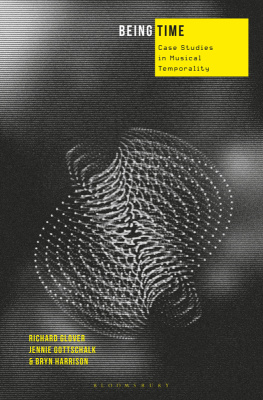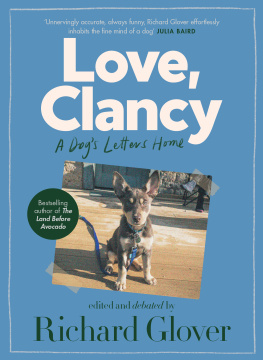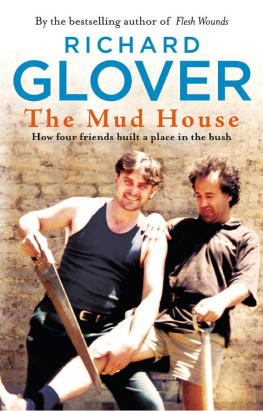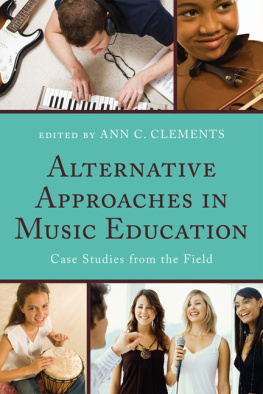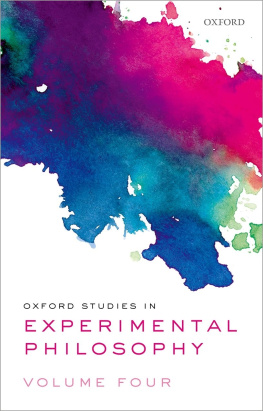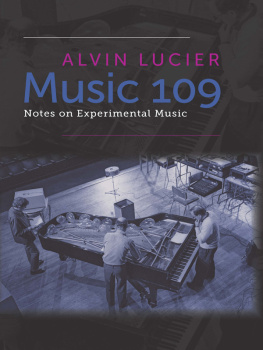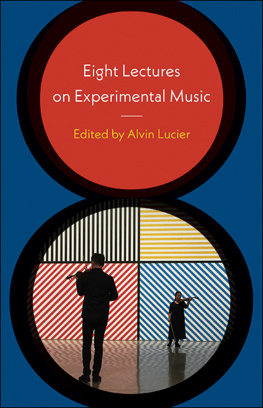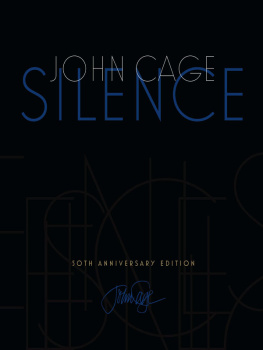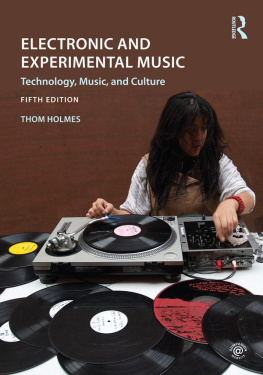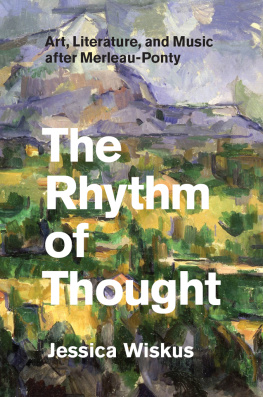Being Time
Being Time
Case Studies
in Musical Temporality
RICHARD GLOVER,
JENNIE GOTTSCHALK, AND
BRYN HARRISON

All three of us would like to thank Kristine Healy for her insightful engagement with the text and the peer reviewers for their extremely useful feedback. We are also grateful to the composers of the works included for providing such a rich basis for this exploration. Jim Gardner, former director of 175 East was generous in providing information about the performances of James Saunders 511 possible mosaics. The authors would also like to thank Radio New Zealand for making this particular set of recordings available. Lastly, wed like to thank Bloomsbury for their open-mindedness in taking on a project of this kind.
Listeners to music listen through time. The sounds that they hear occur in a temporal frame, and the nature of that frame transforms according to the listener and the listening space. The listener is a complex aggregate of different histories and faculties. Cultural conditioning, acuity in memory recall process, concentration, and stamina all contribute to the manner in which any one person will have a unique temporal experience of a musical work. As Jonathan Kramer writes in The Time of Music (1988), Music allows us to experience subjective time without having to remove ourselves from the time experiences we share with other people.
What makes temporality a topic of interest through which to explore music? Our experience of the passage of time continues independently of the event of listening to music; temporality does not begin when music is switched on. Similarly, when we listen to music, we do not switch off the outside world; our perceptions of temporal flow in musical listening are a part of our wider awareness of temporality. However, the act of listening to music is a powerful scenario for bringing temporal awareness sharply into definition. We become aware of the changes, indentations, and transformations that our sense of temporality undergoes in response to the music to which we are listening. Music prompts us to develop an awareness of our own relationship with the passage of time, and of our own personal imprint or interpretation of temporality. In this book we will explore our own perceptions of temporality in relation to specific listening experiences, and suggest what it is in the music that shapes and conditions these experiences.
We would like to suggest several ways of approaching this book that may prove useful. Firstly, it is a meditation on the capacity of musical works to influence temporality. It is also, correspondingly, an investigation of musical behaviors that have an impact on temporality.operate as an extended (in both senses of the word) invitation to consider musical works as a subject, rather than as fixed objects. Finally, we hope that the content of this work provides evidence of the continued validity and utility of exploring particular works in depth and developing an ongoing conversation about them.
A series of encounters
While each of the authors has thought deeply about temporal perception in music, we did not enter into this project with any fixed assertions or conclusions. What we have set up instead is a series of encounters between subjects and musical works. These encounters, in their numerous iterations and variations, have revealed musical characteristics and personal tendencies that, taken in combination, have a significant impact on temporal perception.
We found that the act of writing the chapters and discussing the works with others necessitated rigorous self-reflection. The ways in which each of us responded to the challenges of this reflective process are evident in the unique style and voice of each authors contribution. However, our reflections are first and foremost about a reckoning with the temporality of a musical work. The use of existing recordings allowed the three of us to have common reference points, so that we could discuss the similarities and differences between our experiences of listening to what is apparently the same event. We decided that there would be no correct or incorrect interpretations of each pieces temporality; each persons experience was assumed to be true insofar as it could be articulated. However, as listeners, we were often faced with our limits of memory, perception, endurance, or tolerance; we became aware of the impact of those limitations on our own temporal experience and our capacity for articulating it. The discussions that were born out of the labor-intensive process of listening, writing about our listening experiences, and sharing our thoughts with each other were incredibly fruitful and fascinating.
The process of piecing together this book, then, was initiated by examining our own responses to certain pieces, and questioning how we each understand our temporal experience as impacted by these pieces. We have dug deeply into our own personal listening contexts and have each attempted to discern a sense of temporal flow as it transformed throughout the listening experience. From this point of reference, we identified and explored the types of musical behaviors that bring about those experiences.
The three of us are all practicing composers and listeners of new music, but we have set out to explore temporal experiences with the latter identity in the foreground. We dont regard this book as primarily being a study of experimental practices. Our primary interest here is in the ways in which time passes when its flow is shaped by musical works. But apart from an interest in temporality, our main point of commonality and the reference point that makes it natural to collaborate is an alignment with experimental music practices. The pieces selected for study cover a broad range of experimental practice, and, furthermore, not all of them sit squarely within its boundaries. But given our individual and shared interests, we feel that we have the most to offer when considering music which falls generally within our field of knowledge.
We have found that experimental practices offer a rich groundwork for considerations of temporality. To briefly list a few examples, the prevalent interests in extremity extend to duration, form, and perceptual thresholds. The broader ethos of asking questions within musical works and using sound to reframe that which seems familiar is highly conducive to reconsiderations of temporality. In this project, we consider how compositional and interpretive approaches in experimental musics affect our own temporal experiences in listening. Our work here does not represent a comprehensive study of experimental music, of musical temporality, or even of the works under consideration. Rather, it is intended to promote deep, considered thought on the nature of our personal experiences of temporality when listening to these works. It is a triangulation between the works, subjectivity, and temporality, as much as it is a triangulation among our three points of view. It positions the listener as an active participant in the practice of music-making. First and foremost, in writing the book we set out to allow the experience of the music to take precedence over and above the composed instructions to the performer, or theories of temporality.
We are writing about specific works, specific recordings, and the specific listening sessions we have had with those works. This project does not deal in generalities. There is no statement that we feel can be applied to a generic short or long piece, or even to a typical piece by a particular composer; we steadfastly avoid conjecture, as the focus is on the specific and the individual. The most obvious features of a piece might be only incidental to our experience of it. Anyone with an experience of late Feldman, for example, will probably have some idea of the kinds of responses that will be relayed in the following chapter due to the repetition of similar materials over a long duration. But the subject of the chapter about Feldman is
Next page
